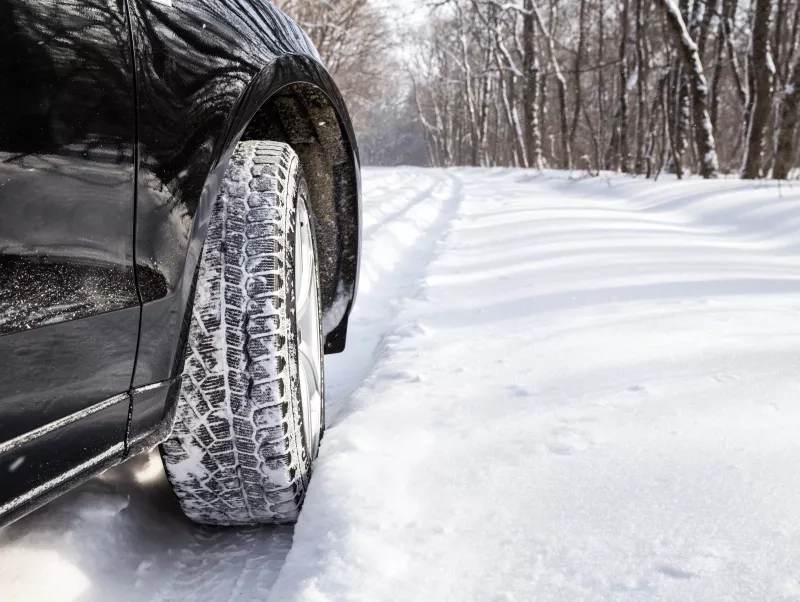
Are winter tires worth it?
2 Minute Read
Summary
- Winter tires enhance traction, braking, and handling, cutting stopping distances by up to 40%.
- Cold-resistant rubber ensures superior grip and safety on icy and snowy roads.
- The safety benefits of winter tires outweigh their upfront costs and seasonal maintenance.
Do you switch to snow tires or stick with all-seasons? With the cost of winter tires and installation running a few hundred dollars at minimum, it’s no small decision.
But are they really worth the time and money?
According to Ontario’s Ministry of Transportation, the answer is a resounding yes. While all-season tires may be adequate in some areas, they are not suitable for driving in the snow-belt regions of southern Ontario and throughout the north. Winter tires provide better traction, braking, and handling in frost, snow, and slush – especially on icy roads.
Winter tires are designed with a special rubber compound that remains pliable in freezing temperatures, ensuring better grip on icy and snowy roads. In contrast, all-season tires harden in the cold, reducing their ability to stop quickly and safely. This difference in performance can be life-saving, as winter tires maintain their elasticity and grip even at temperatures below 7°C.
Why winter tires outperform all-seasons
Winter tires are not required by law, but they are recommended by Ontario and other provincial governments.
The science behind winter tires is clear. The rubber compound in winter tires is designed to stay soft in sub-zero temperatures, moulding itself to tiny imperfections in the road. This provides greater traction, even on what appears to be a perfectly smooth pane of icy glass.
In contrast, all-season tires are designed to handle a wide range of conditions, including the extreme heat of summer. Transport Canada states that at temperatures below 7°C, all-season tires lose elasticity, leading to reduced traction. Winter tires, on the other hand, maintain their grip and flexibility, ensuring safer handling and braking.
Additionally, winter tires feature deeper treads and sipes, which help channel snow and slush away from the tire surface, improving grip and reducing the risk of hydroplaning.
Proper installation matters
To ensure stability and control in icy conditions, winter tires should always be installed in sets of four. Mixing tires with different tread patterns, sizes, or internal constructions can make your vehicle less stable and harder to handle. For optimal performance, the tires with the deepest tread depth should be installed on the rear of the vehicle to help maintain directional control, especially in slippery conditions. Regular tire rotation ensures even tread wear, which is crucial for maintaining traction.
Time to change your tires?
CAA Mobile Tire Change brings the garage to you! Book your appointment now or check out all of CAA's Pit Crew services.
Need new tires? CAA's Mobile Tire Sales makes it easy to shop for quality tires that fit your vehicle. CAA Members also get exclusive discounts, including savings on seasonal tire storage to keep your off-season tires safe.




